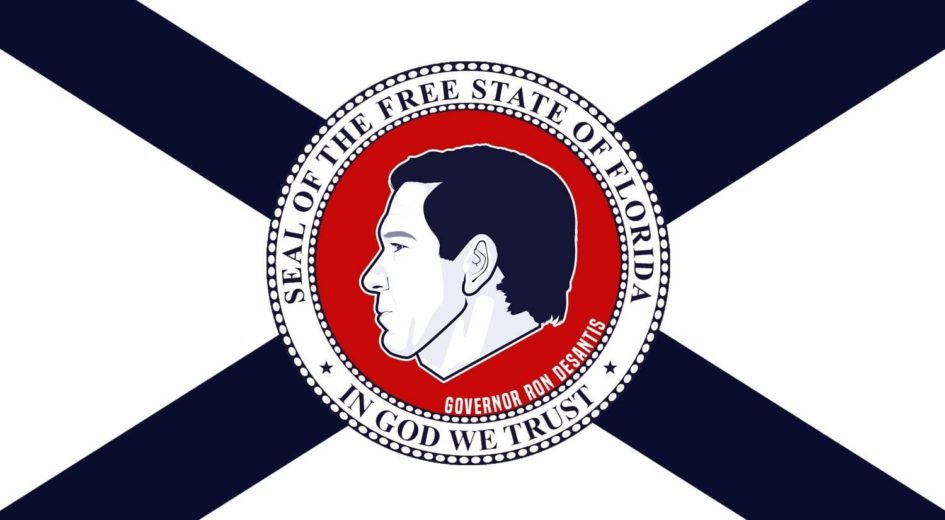Ron DeSantis has launched his run to be endorsed as the Republican candidate for 2024’s US. presidential elections. And he did it in a way only exploited by another leader of the American right, Tucker Carlson: he used Twitter.
But who is Ron DeSantis? His bid for the presidential nomination from the Republican Party is not an oddity in a movement now shaped by the shadow of Trump’s 2016 victory and his 2020 contested defeat, but as the logical conclusion of an astronomical rise of a follower into a leader of its own, a proclamation of sorts of the Roman imperium of a rival claimant to the position of Princeps et Dux of the Right in the United States.
Florida-born and raised, and a descendant of Italian émigrés from the post-Risorgimento southern Italian diaspora, Ron DeSantis was brought in a Catholic family, and right after graduating high school, managed to be admitted to Yale University, where he studied history, before attending Harvard Law School, where he became a Navy commissioned officer, assigned to its JAG Corps, before graduating with honors as a juris doctor in 2005.
He then spent in military service for the following 5 years, being deployed to Iraq and serving as a Special Assistant U.S. attorney back in Florida, before being honorably discharged from active duty in 2010. Two years later, he entered into national US politics, running for and winning a seat in the House of Representatives, where he served for three consecutive terms, getting reelected in 2014 and 2016, where he was first known as a regular fiscally conservative Republican, before switching to a hardline Trump supporter stance by openly criticizing the Mueller’s investigation on Russian interference in the 2016 elections.
By 2018, right in the middle of Donald Trump’s presidency, he ran and won to become Florida’s governor, partly from the support of the then-president, and for the first two years, he focused mostly on water-administration projects, but with the COVID-19 outbreak, his policy changed into opposing mandatory masking and vaccination, and to cover for any economic downturns, cut state taxes.
This also helped him to focus on other issues, particularly those related to the Culture Wars, such as education and immigration, and by early 2022, his policy to eliminate LGBT and Marxist influence from school curricula put him at odds with Florida’s biggest employer, Disney, and the controversial step to redirect illegal immigrants to the exclusive island-neighbourhood of Martha’s Vineyard in Massachusetts earned him the ire of the liberal and Democratic establishment.
An outspoken pro-life, pro-guns rights and law and order politician, Ron DeSantis made of Florida a conservative governance model in the US and abroad, and his presidential bid has adopted the slogan of “Our Great American Comeback”, a call back to Trump’s “Make America Great Again” without sounding like “Make America Florida”.
Just like in the late imperial Rome, where it was common for generals to be acclaimed Emperors by their legions in far provinces (we can think of Constantine the Great proclaimed Augustus in 306 in the city of Eboracum, now York, in Great Britain), for them to then go back into Rome to depose their rivals (again, Constantine defeating Maxentius in the Tiber river in 307), DeSantis seems to have used his successes in Florida to springboard his rise as a potential president of the United States, challenging his former chief for the American imperial elective honor.
Is this the rise of Ron DeSantis from an incumbent Princeps Floridiae to the next American Imperator?
 The Libertarian Catholic
The Libertarian Catholic
















